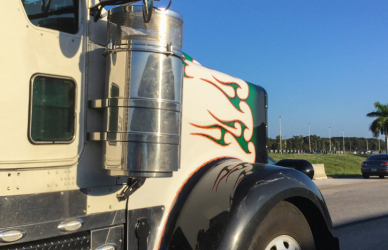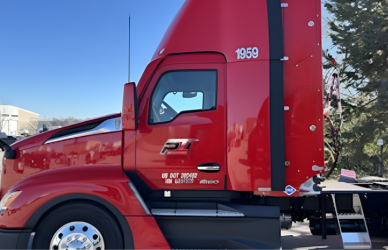Truckers face unique safety challenges, navigating long distances through unfamiliar territories and often becoming targets for criminals seeking valuable cargo. Prioritizing personal safety is paramount, requiring truckers to equip themselves with knowledge and tools for self-defense. Below, we’ll explore some best practices aimed at enhancing personal security while on the road.
Situational Awareness
Maintaining heightened situational awareness is fundamental for personal safety. Truckers must stay vigilant, especially when parked or stopped at rest areas, gas stations, and public places. Constantly evaluating surroundings for potential threats and promptly reporting any concerns to law enforcement is crucial.
Self-Defense Training
Empowering truckers with self-defense training is a pivotal aspect of personal safety. Enrolling in a self-defense course, which imparts practical techniques against potential attackers, can be transformative. While some trucking companies offer such training, numerous online resources, including cost-effective options, are available for those seeking additional instruction.
Personal Safety Equipment
Alongside self-defense training, considering personal safety equipment like pepper spray or a stun gun is wise. These tools serve as effective deterrents against potential attackers, providing truckers with a means to defend themselves during emergency situations. Adhering to local laws regarding possession and use is essential, especially for those regularly crossing state lines.
Emergency Response Protocols
Being prepared for emergency situations is essential. Truckers should have a well-thought-out plan, including knowledge of the nearest hospital and emergency services, along with a readily available list of emergency contacts. Keeping a first-aid kit on hand for minor injuries further enhances preparedness.
Defensive Driving Techniques
Incorporating defensive driving techniques is vital for overall personal safety. Truckers should undergo training in defensive driving to prevent accidents and minimize injury risks. Techniques such as maintaining a safe following distance, staying aware of blind spots, and avoiding distractions while driving contribute to a safer journey. Many fleets provide comprehensive defensive driving training, complementing the foundational CDL training.
Personal safety and self-defense form integral aspects of a truck driver’s responsibilities. Taking proactive measures and adhering to the best practices outlined here significantly reduces the risk of victimization and enhances overall safety on the road. Remember, preparation is key, and investing in the right equipment, training, and mindset can make a substantial difference. Stay alert, stay vigilant, and prioritize safety throughout your journey on the road.











